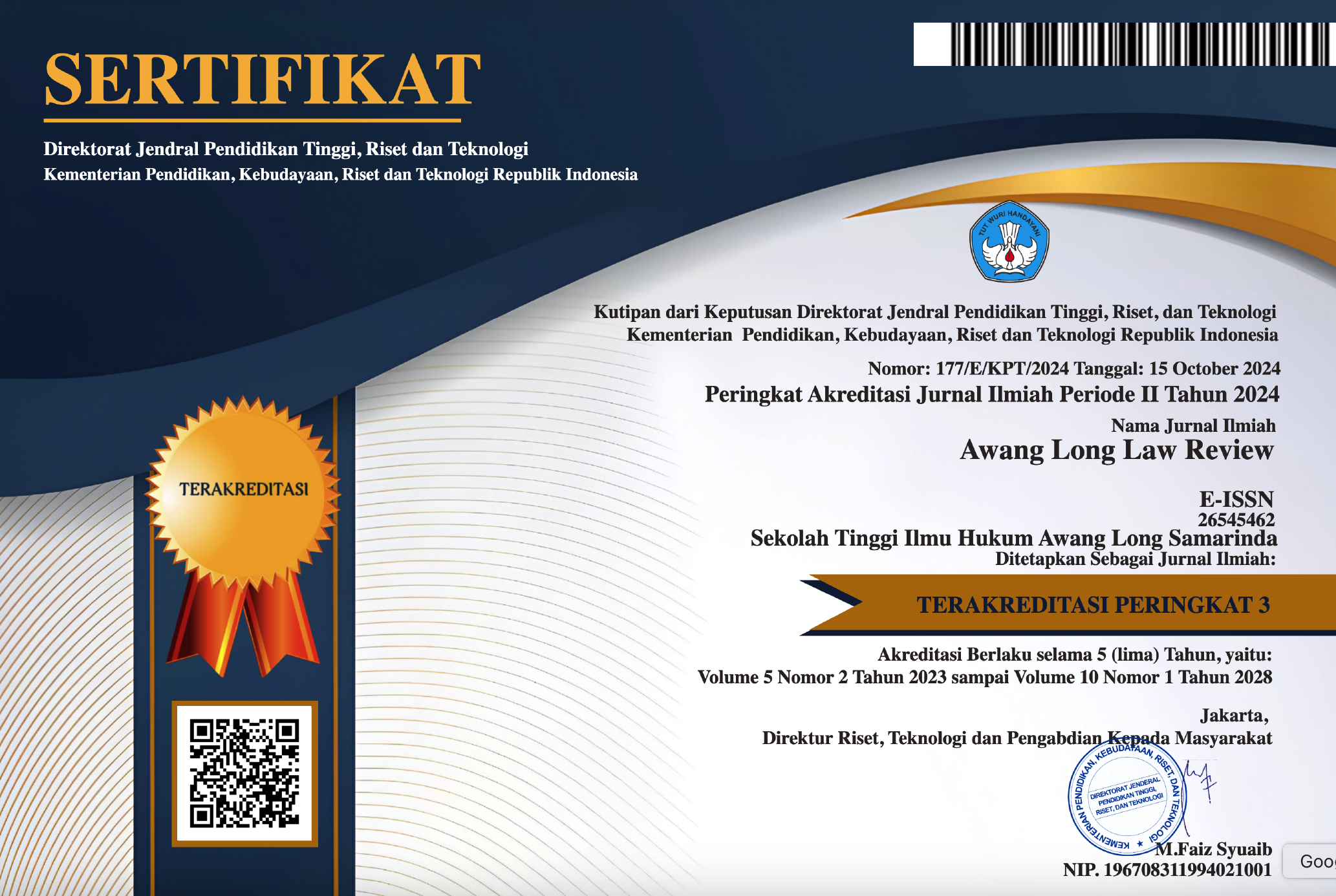BICAMERAL SYSTEM IN THE PRACTICE OF ORGANIZING THE INDONESIAN PARLIAMENT (A Study of The Transformation of The Regional Representative Council Into The Second Chamber in The Parliamentary System In Indonesia)
Abstract
The Indonesian Parliament after the amendment to the 1945 Constitution of the Republic of Indonesia practiced an incongruent patterned bicameral system. It was called incongruent Because The first room was different from the second room. The first room (DPR) is a political representation while the second room (DPD) is a territorial/regional/regional representation and soft character, Because The Council's legislative functions and authority are limited to Certain fields. The problem is What is the style and character of the Indonesian Parliament after the changes to the 1945 Constitution of the Republic of Indonesia? How is the system of checks and balances (supervision and balances) in people' s representation in Indonesia fulfilled through a bicameral parliamentary system? How is the Transformation of the Regional Representative Council of the Republic of Indonesia into the second room in the Indonesian parliament to Realize popularism led by wisdom in Deliberation/representation in Indonesia? The research method in this dissertation is legal research with a normative Juridical approach. The results of his research are that the ideal building of the Indonesian parliament in the future must be developed into a strong bicameralism system. MPR membership consists of DPR and DPD. MPR as a joint session. The MPR is no longer an independent institution. It is only a forum for meetings between 2 (two) institutions items, namely the Council and the Parliament. When the trial takes place, both Council members and the House of Representatives members, Werner as members of the Council and the Parliament. They did not join together in an MPR institution.







